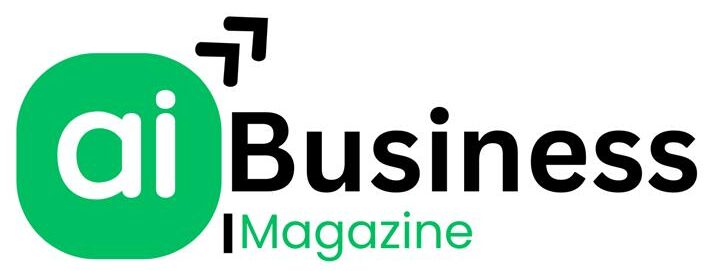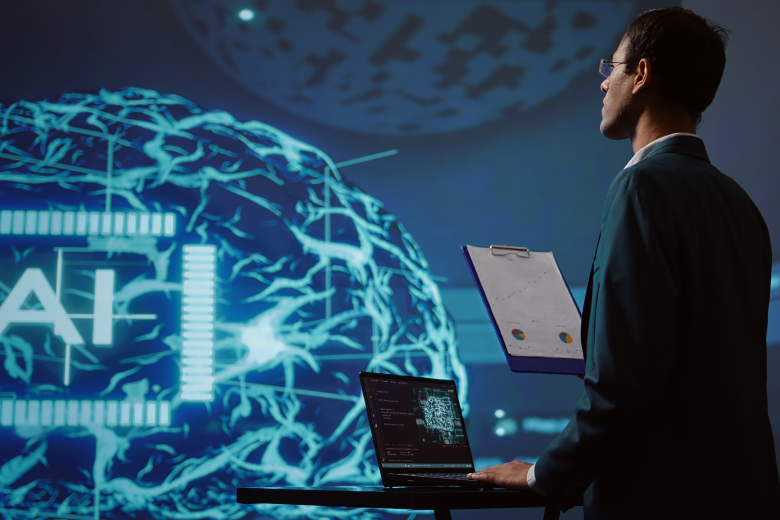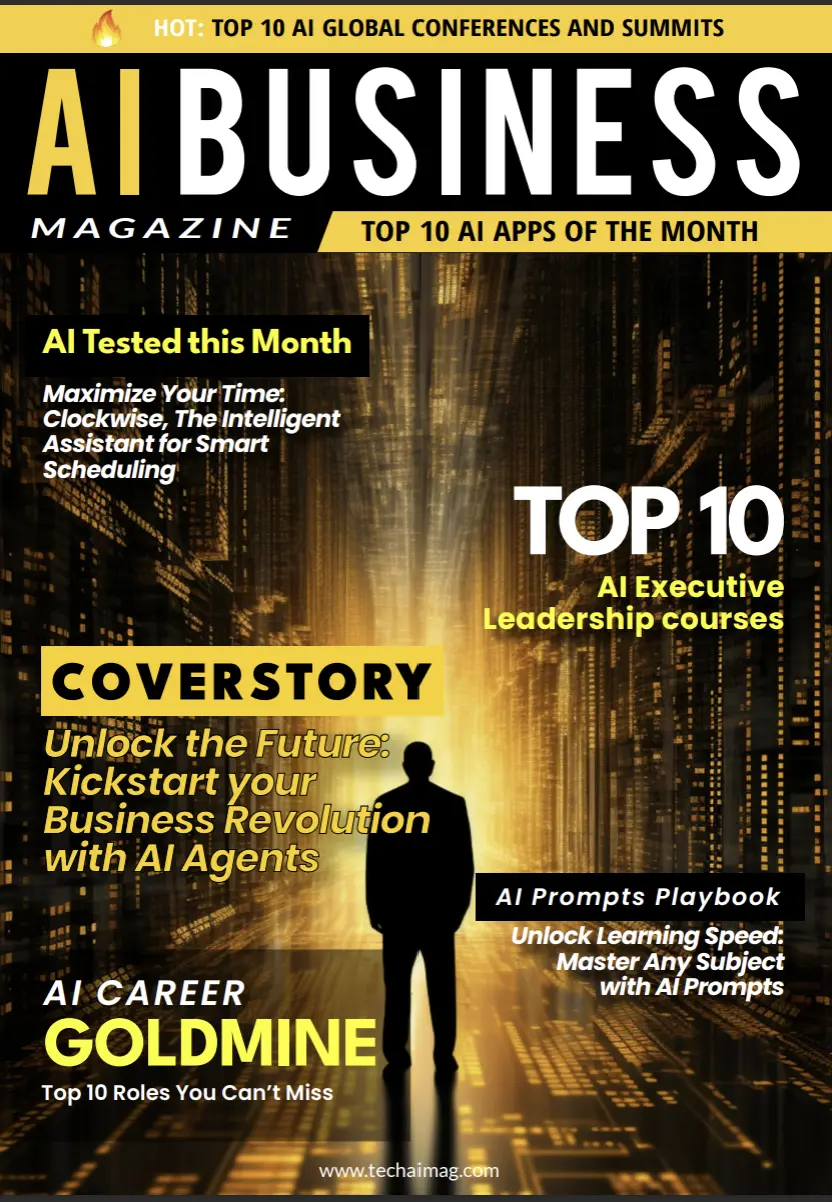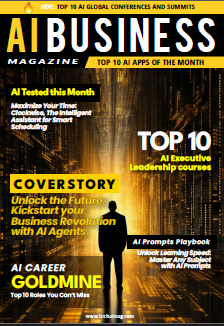Introduction
Every month, we decode the most compelling reads in artificial intelligence, bringing you carefully curated selections that bridge imagination and innovation. Each month, we hand-pick the most insightful, engaging, and thought-provoking titles, bringing you the cream of the AI crop. Prepare to be captivated as we explore the latest breakthroughs, delve into cutting-edge research, and uncover the fascinating stories behind the science. Get ready to expand your knowledge and fuel your imagination with our top AI book recommendations.
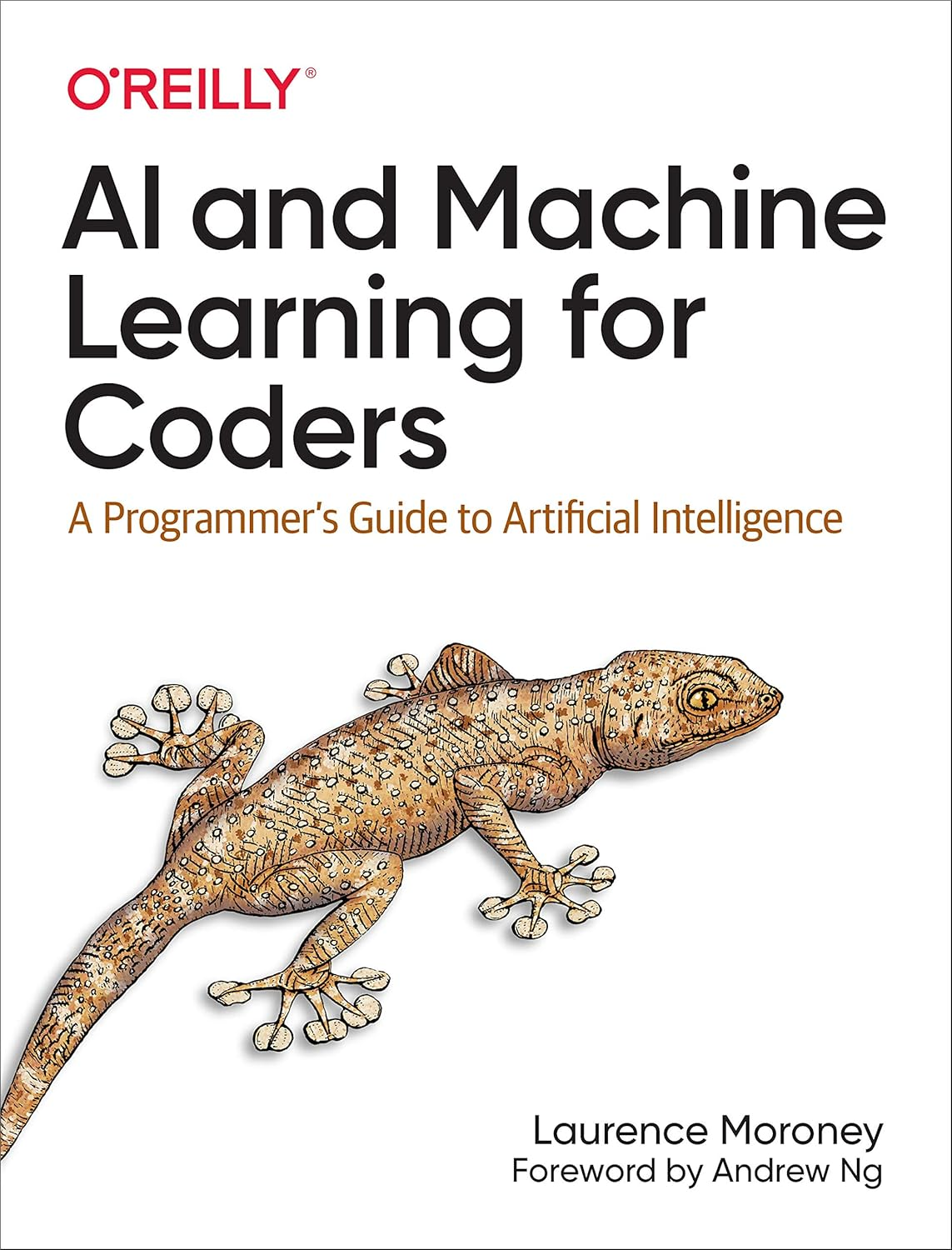

Every month, we decode the most compelling reads in artificial intelligence, bringing you carefully curated selections that bridge imagination and innovation. Each month, we hand-pick the most insightful, engaging, and thought-provoking titles, bringing you the cream of the AI crop. Prepare to be captivated as we explore the latest breakthroughs, delve into cutting-edge research, and uncover the fascinating stories behind the science. Get ready to expand your knowledge and fuel your imagination with our top AI book recommendations.
Ever wonder how apps seem to get smarter all the time? A lot of it comes down to machine learning. And if you’re a coder, Laurence Moroney’s ‘AI and Machine Learning for Coders’ book makes it straightforward, focusing on practical coding rather than endless theoretical reading.
About the Author
Laurence Moroney is more than just an author; he is a passionate advocate for AI education at Google, aiming to make AI accessible to developers globally. His focus is on hands-on coding rather than just theoretical discussions.
Moroney has a unique gift for simplifying complex concepts into relatable ideas, striking a balance between technical expertise and storytelling. Beyond his work with Google, he also writes scripts and science fiction novels, which demonstrates his ability to connect with diverse audiences. He shares insightful content through numerous YouTube tutorials and online platforms, nurturing an active learning community.
This unique combination of technical ability and effective communication makes him an excellent mentor for programmers eager to explore AI. He not only imparts knowledge but also inspires others, demonstrating that AI is attainable for anyone willing to invest time in learning.
Overview:
Laurence Moroney’s ‘AI and Machine Learning for Coders’ is a practical guide for anyone wanting to code with TensorFlow. It breaks down AI concepts into simple terms, so both new and experienced programmers can understand them.
Readers jump right into making real applications, like image recognition and natural language processing. You’ll get hands-on coding examples and exercises to help you learn.
The book keeps technical talk to a minimum. Instead, it focuses on learning by actually doing things. It also teaches how to use AI models on different platforms. This way, you can see how to move from coding to real-world projects.
Pros:
Jump Right into Building AI: Laurence Moroney’s book is all about getting you to code with TensorFlow right away. You won’t get stuck in endless math. This means you can start building real AI projects fast, which is way more fun than just reading about it. It’s like learning to cook by actually cooking, not just reading recipes.
Finally, AI That Makes Sense: Ever read a tech book and felt totally lost? That won’t happen here. Moroney explains AI in simple terms, like having a friendly expert guide you. He uses examples you can relate to, so you’ll actually get what he’s saying. This makes learning AI feel much easier and less intimidating.
Learn the Skills You Actually Need: This book gives you the core AI skills that are in demand, like teaching computers to “see” and “understand” language. You’ll learn how to build apps that do cool things, and that’s super useful. It’s like getting the right tools for the job, so you can build anything you want.
Take Your AI Projects Live: It’s not enough to just build AI models; you need to know how to use them. Moroney shows you how to put your AI projects on different devices and platforms. This means you can share your creations with the world, and that’s pretty awesome. You’ll learn how to make AI real, not just theoretical.
2. AI 2041: Ten Visions for Our Future
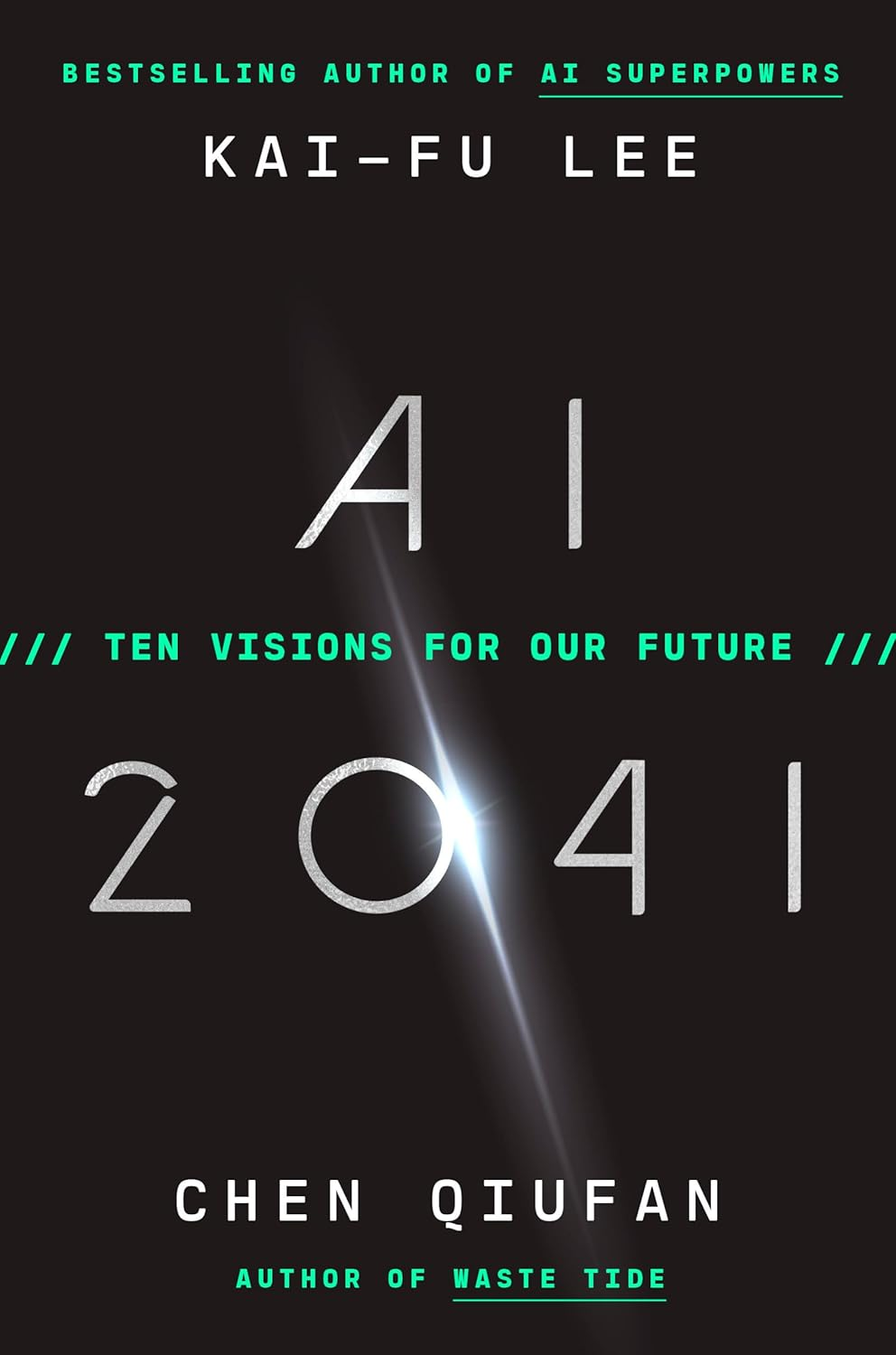

Wonder what our AI-powered future might really look like? AI 2041: Ten Visions for Our Future takes you on a journey through possible futures, combining engaging short stories with expert insights to paint a vivid picture of what may await us in the coming decades.
About the Authors
“AI 2041” brings together two remarkable minds creating a powerful synergy between technological expertise and creative storytelling.
Kai-Fu Lee is a visionary in the AI industry with unparalleled credentials. As the former president of Google China and a senior executive at tech giants like Microsoft and Apple, Lee brings deep technical knowledge to the table. His role as co-chair of the Artificial Intelligence Council at the World Economic Forum places him at the center of global AI policy discussions.
Chen Qiufan complements Lee’s expertise with creative brilliance. As an award-winning science fiction author and creative producer, Chen brings human dimension to technological predictions. His acclaimed works demonstrate his ability to craft compelling narratives around complex technological themes.
Together, they create a unique blend of technological foresight and narrative imagination that brings possible AI futures vividly to life.
Overview:
AI 2041: Ten Visions for Our Future offers a fascinating glimpse into how artificial intelligence might reshape our world. This innovative book pairs ten gripping short stories with expert commentary, creating a unique reading experience.
Each story transports readers to different corners of the world in 2041, introducing characters navigating a society transformed by advanced AI technologies. From deep learning and mixed reality to robotics and autonomous weapons, the narratives explore both the potential and pitfalls of these innovations.
What sets this book apart is its dual approach: fiction makes abstract concepts tangible through human stories, while commentary sections ground these scenarios in technological realities. This structure helps readers understand not just what might happen with AI, but why and how it could unfold.
Unlike purely academic books on AI, “AI 2041” makes complex concepts accessible through storytelling, offering both entertainment and education for readers curious about our technological future.
Pros:
Experience AI Futures, Don’t Just Read About Them: “AI 2041” doesn’t just tell you about potential AI developments—it lets you experience them through vivid stories. You’ll follow characters navigating AI-enhanced worlds, making abstract concepts personal. It’s like test-driving possible futures, giving you a deeper understanding than dry predictions ever could.
Two Expert Perspectives in One Book: This collaboration delivers a rare combination of industry insight and creative imagination. Lee’s technical expertise ensures predictions are grounded in real possibilities, while Chen’s storytelling brings human dimension to these scenarios. It’s like having both a tech advisor and creative guide accompanying you on your journey into the future.
Global Perspective on AI’s Impact: Unlike many Western-centric tech books, “AI 2041” explores AI’s potential impact across diverse cultures worldwide. The stories unfold across different countries, offering a truly global view of how AI might shape various communities. This broader lens helps readers understand how AI will transform not just technology, but human experiences across cultural boundaries.
Balanced View of Promise and Perils: The book doesn’t fall into either techno-utopianism or fearmongering. Instead, it presents nuanced scenarios showing both benefits AI could bring and potential challenges. This balanced approach helps readers develop a more sophisticated understanding of AI’s implications.
Conclusion
These two remarkable books represent different yet complementary approaches to understanding AI’s impact on our world.
Laurence Moroney’s ‘AI and Machine Learning for Coders’ offers an immediate, hands-on gateway to building with AI today. It empowers programmers to jump straight into creating practical applications with TensorFlow, making what once seemed complex both accessible and actionable.
Meanwhile, AI 2041: Ten Visions for Our Future invites readers to look beyond current capabilities and glimpse what our AI-infused future might hold. Through its unique blend of storytelling and expert analysis, Lee and Chen help us envision and prepare for the societal transformations that advanced AI could bring in the decades ahead.
Both titles are available on Amazon, offering valuable entry points to understanding one of the most transformative technologies of our time. For coders ready to build and for visionaries eager to understand what’s coming, these books deliver exceptional guidance on the AI journey ahead.
